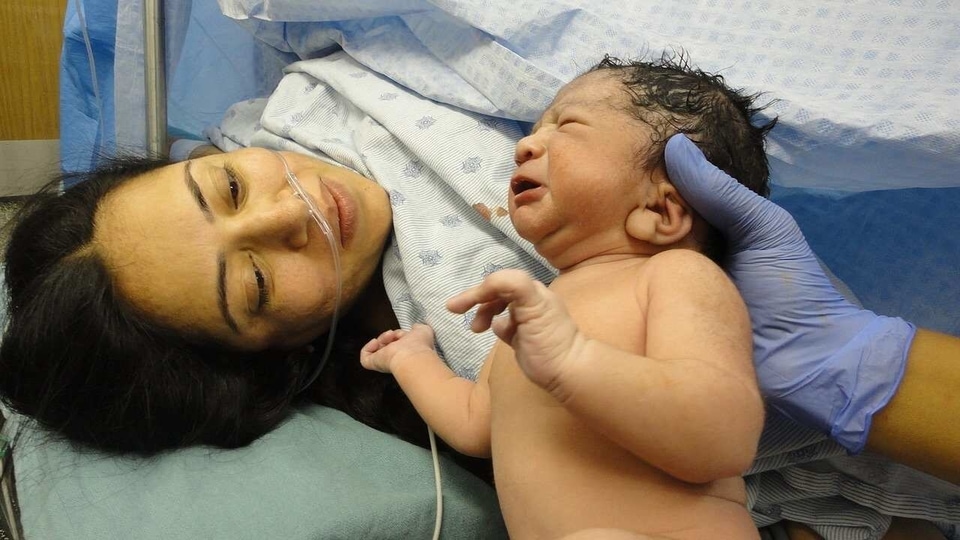From apps to video games, the ASMAN initiative is helping mothers, newborns through Covid-19
While under ‘normal’ circumstances, ASMAN’s work is hard enough, their challenges doubled once the country went into lockdown to deal with the Covid-19 pandemic and social distancing became the need of the hour.

From the time the lockdown began in India, ASMAN (Alliance for Saving Mothers and Newborns), has had to work that much harder to keep up with their work. ASMAN initiative, of which Reliance Foundation is a part, works on improving the survival of mothers and newborns in India by providing better quality of care, particularly during the crucial 48 to 60-hour period around childbirth, using technology innovations, in public health centres.
While under ‘normal' circumstances, ASMAN's work is hard enough, their challenges doubled once the country went into lockdown to deal with the Covid-19 pandemic and social distancing became the need of the hour. ASMAN had to double down on their use of tech to keep mothers and newborn children safe.
We spoke to Nupur Bahl, Programme Head of CSR initiatives at Reliance Foundation, to find out more about what it entailed and here are excerpts from our interview.
How are you using technology at this point in time when social distancing and lockdowns are the new normal? Tell us about all the uses
Covid-19 has changed the world for everyone. Health systems are being tested. The importance of digitally connected tools and platforms has been highlighted. Technology in the hands of well-trained providers plays a significant role in delivering quality healthcare and its value is more evident today.
As part of the ASMAN program use of e-consultations is encouraged through our Remote Support Centers that offer specialist support to complicated labor cases at the peripheral facilities. This not only helps to avoid the delay in initiating the correct treatment at the peripheral health facility but also curbs unnecessary travel for the pregnant women to a higher facility, during Covid-19.
During the Covid-19 crisis, the significance of Patient Triage in a healthcare facility has been highlighted. Triage helps sort and prioritise the patients based on their current medical condition and clinical need at that hour. In busy ASMAN facilities, esp. in District Hospitals, tablets are placed in Triage area and thereafter at important patient checkpoints like pre-labour wards, labour room, PNC wards, etc.
Crucial patient information is entered in ASMAN app on the patient's arrival in the facility and information gets added, as the patient gets various levels of care. The application sends alerts in case of high-risk and helps in navigating the patient to either the ward, the labour room or the operation theatre.
The ASMAN app provides real-time guidance during complicated cases, and help is provided by the Remote Support Center, through specialised doctors, who can view the entire case record of a pregnant woman through the app and guide healthcare providers accordingly.
Orientation programs have also been conducted for Chief Medical and Health Officers, District Program Managers, doctors and nurses on Covid-19, via video conferencing, in all of our intervention facilities of Madhya Pradesh and Rajasthan.
Did you have to ramp up the use of tech in certain cases given the current situation? How easy or difficult was it?
Healthcare facilities that respond effectively to emergencies have a few things in common: trained personnel; connected digital technologies; effective referral and remote support facilities; monitoring and evaluation mechanisms in place with smart and real-time analytics; and respectful care. In sum, we can be prepared for any catastrophe if we have strong, connected, efficient, responsive, and equitable public health systems.
This is where the ASMAN program fits in well since we are already doing all of the above through technological intervention like out tabs and the ASMAN app.
Then there is capacity building and sustaining through continual learning and gamification. ASMAN makes use of game-based case scenarios and e-learning modules to keep the nursing staff informed and equipped to handle different situations. The game features 29 complex case scenarios arranged in five levels of five to six scenarios each, available in both English and Hindi.
Just like a regular video game, the games get progressively difficult with every level nurses must beat the clock to save a life just as they would do in real life. This educational content, as well as the clinical guidelines, gives nurses, easy to understand and practical information on how to manage any type of situation they may encounter in the labour room.
Our Remote Support Centers (RSCs) provide round-the-clock specialised support to peripheral facilities, offering real-time guidance for management of complicated cases, through specialist doctors based in medical colleges. These centers enable continuity of care in case there is a complication or emergency during delivery.
Currently, Madhya Pradesh has one RSC at Indore (Mahatma Gandhi Medical College) and Rajasthan has three RSCs at Kota (J. K. Lone Medical College), Jhalawar (Medical College and Hospital and Ajmer (Zanana Medical College and Hospital).
Catch all the Latest Tech News, Mobile News, Laptop News, Gaming news, Wearables News , How To News, also keep up with us on Whatsapp channel,Twitter, Facebook, Google News, and Instagram. For our latest videos, subscribe to our YouTube channel.


























